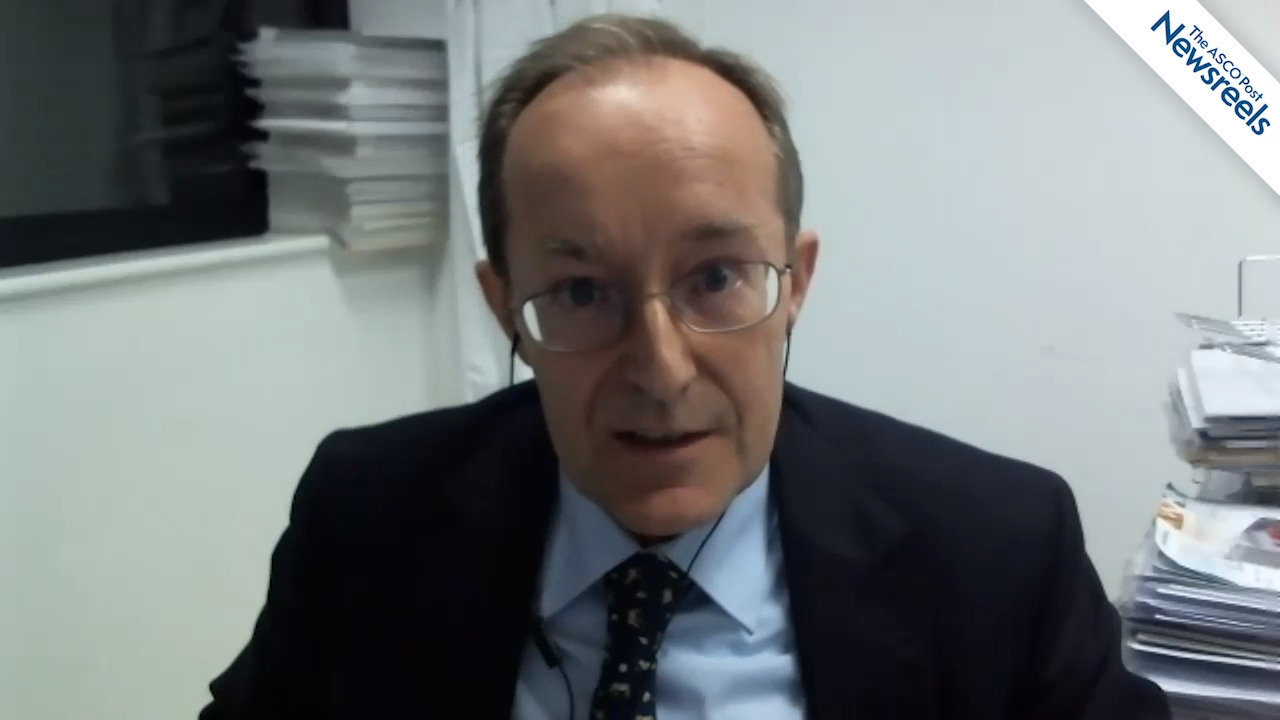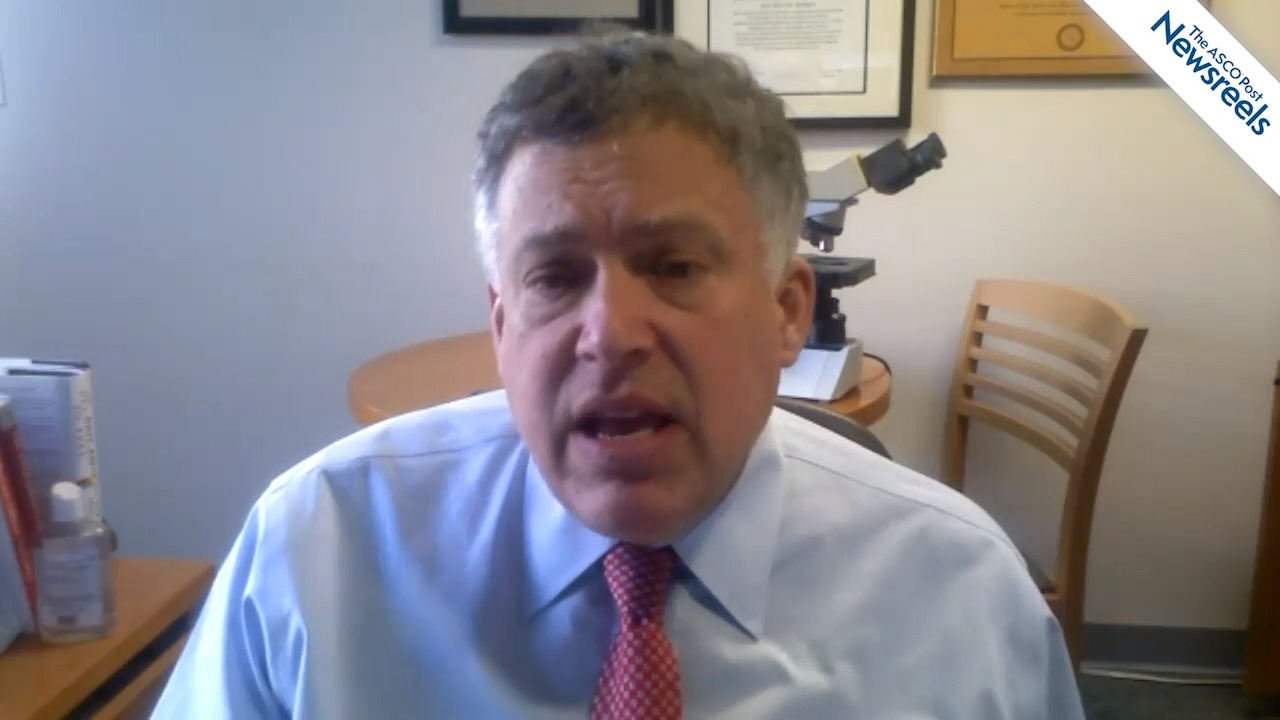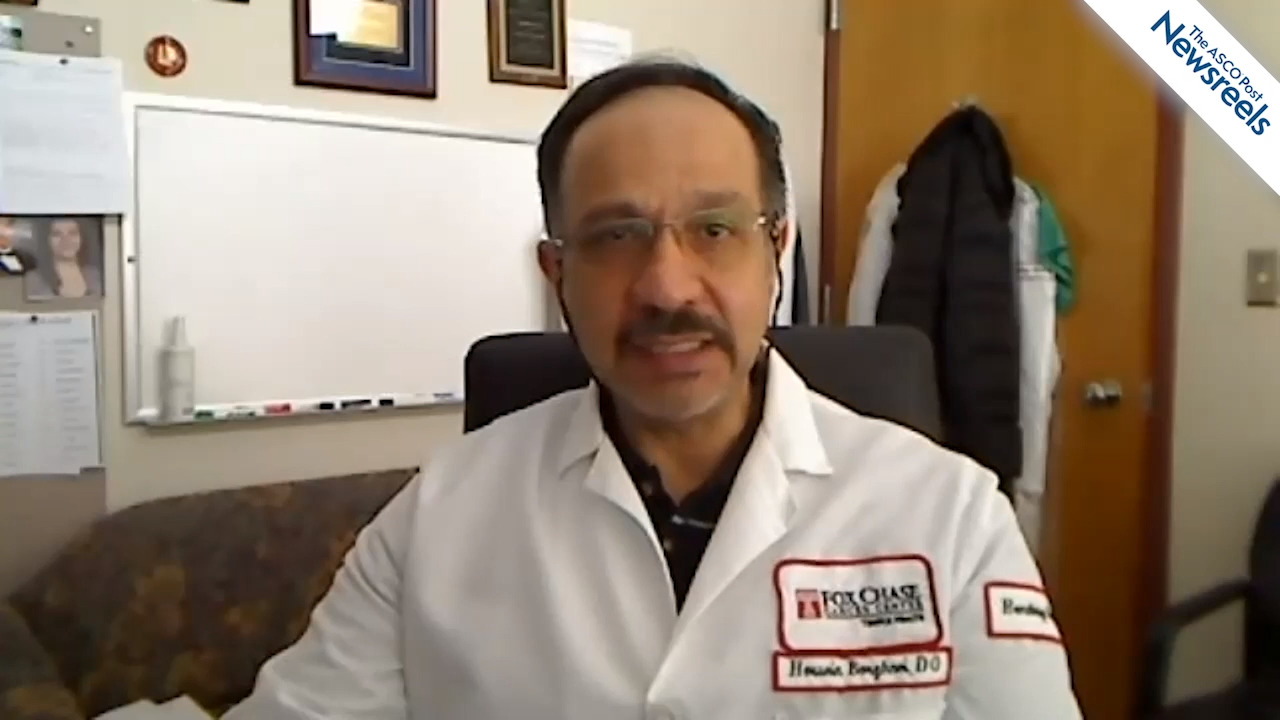Roy S. Herbst, MD, PhD, on NSCLC: Osimertinib and Patient-Reported Outcomes
IASLC 2020 World Conference on Lung Cancer in Singapore
Roy S. Herbst, MD, PhD, of Yale University, discusses two key abstracts from the ADAURA trial: the use of osimertinib as adjuvant therapy for resected EGFR-mutated non–small cell lung cancer; and patient-reported outcomes, which showed a benefit in disease-free survival and maintenance of health-related quality of life in patients with resected stage IB to IIIA disease (Abstracts OA06.04 and OA06.03).
The ASCO Post Staff
Jill Feldman, a patient advocate and lung cancer survivor, discusses the current challenges and potential solutions to including more people of color and those in underserved communities in clinical trial research (Abstract PL04.06).
The ASCO Post Staff
Martin Reck, MD, PhD, of LungenClinic, discusses results from the IMpower133 study of carboplatin plus etoposide with or without atezolizumab in patients with untreated extensive-stage small cell lung cancer (Abstract OA11.06).
The ASCO Post Staff
Luis M. Montuenga, PhD, of the University of Navarra, discusses the potential contributions of biomarkers, promising biomarker panels being tested and published, the need to standardize biospecimen collection, and how to improve the sensitivity of these biomarkers (Abstract PL05.06).
The ASCO Post Staff
Roy S. Herbst, MD, PhD, of Yale University, discusses results from the LUNG-MAP Master Protocol, which support the planned use of circulating tumor DNA for enrollment onto LUNG-MAP substudies, with a positive finding meriting inclusion in study; a negative finding, while considered inconclusive, requires the use of tissue samples (Abstract MA08.10).
The ASCO Post Staff
Hossein Borghaei, DO, of Fox Chase Cancer Center, discusses phase I results from a study of AMG 757, an experimental bispecific T-cell–engager (BiTE) immune therapy aimed at the DLL3 molecular target in patients with small cell lung cancer. At this early stage, results show clinical efficacy and safety, with 37% of 51 evaluable patients exhibiting disease control (Abstract OA11.03).





